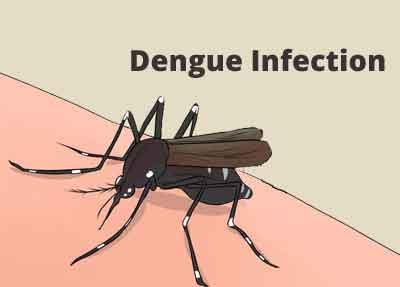- Home
- Editorial
- News
- Practice Guidelines
- Anesthesiology Guidelines
- Cancer Guidelines
- Cardiac Sciences Guidelines
- Critical Care Guidelines
- Dentistry Guidelines
- Dermatology Guidelines
- Diabetes and Endo Guidelines
- Diagnostics Guidelines
- ENT Guidelines
- Featured Practice Guidelines
- Gastroenterology Guidelines
- Geriatrics Guidelines
- Medicine Guidelines
- Nephrology Guidelines
- Neurosciences Guidelines
- Obs and Gynae Guidelines
- Ophthalmology Guidelines
- Orthopaedics Guidelines
- Paediatrics Guidelines
- Psychiatry Guidelines
- Pulmonology Guidelines
- Radiology Guidelines
- Surgery Guidelines
- Urology Guidelines
Perinatal Dengue infection increases risk of Zika induced birth defects in offspring

A new study has revealed that Perinatal Dengue infection increases the risk of Zika induced birth defects in offspring. The kids born of women who have previously produced dengue antibody have a significantly higher risk to develop Zika virus-induced microcephaly and birth defects. The study revealed that immunity for the dengue virus increases the severity of Zika virus in pregnant women leading to placental damage, fetal growth and fetal resorption. The findings were published in the February issue of Immunity, a journal published by Cell Press.
Zika virus outbreaks were first found to be associated with birth defects including microcephaly, in which the baby is born with an abnormally small head and brain, in 2015 in Brazil, where dengue virus, a virus closely related to Zika virus, is endemic. The research team led by Jean Lim, PhD, Associate Professor of Microbiology and Co-Director of Microbiology Multidisciplinary Training in the Graduate School of Biomedical Sciences at the Icahn School of Medicine at Mount Sinai, transferred dengue virus-specific antibodies into mice prior to infection with Zika virus during pregnancy. The presence of these antibodies in the mice significantly increased placental damage, fetal growth, and fetal resorption. Zika-infected human placental tissues also showed increased replication in the presence of dengue antibodies.
"Our data demonstrate that antibodies generated from a previous dengue virus infection can enhance the severity of Zika virus infection during pregnancy," said Dr. Lim. "Our research may explain the high rate of microcephaly and birth defects observed in the recent Zika virus outbreak in South America."
Zika virus erupted in India on a large scale in 2018 and 2015 with 22 confirmed cases of zika-infected pregnant women in Rajasthan in 2018. Zika is spread by daytime-active Aedes mosquitoes, such as A. aegypti and A. albopictus. Zika virus can spread vertically in pregnant women According to a municipal reported in November 2018, over 270 fresh cases were reported in New-Delhi with a total number of people diagnosed with the vector being 2,146. The findings of this study suggest that dengue-infected pregnant women should be made aware of possible zika virus attack and all the available protection against zika should be in check.
Highlights of study are-
- Dengue-specific antibodies can enhance Zika virus pathogenesis during pregnancy
- Enhancement of Zika pathogenesis was observed in the placenta, not in the fetus.
- Placental damage was associated with an increase in infected trophoblasts
- This process was found to be FcγR mediated
To read more about this article please click on the link below
DOI:https://doi.org/10.1016/j.immuni.2019.01.005

Disclaimer: This site is primarily intended for healthcare professionals. Any content/information on this website does not replace the advice of medical and/or health professionals and should not be construed as medical/diagnostic advice/endorsement or prescription. Use of this site is subject to our terms of use, privacy policy, advertisement policy. © 2020 Minerva Medical Treatment Pvt Ltd